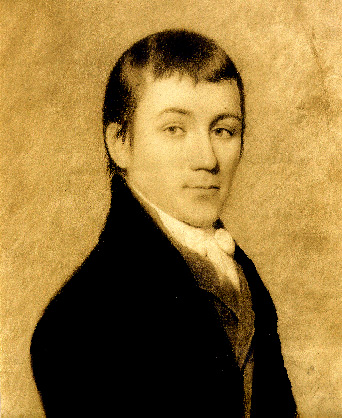Wieland; or, the Transformation (1798)
Kontekst: I feel little reluctance in complying with your request. You know not fully the cause of my sorrows. You are a stranger to the depth of my distresses. Hence your efforts at consolation must necessarily fail. Yet the tale that I am going to tell is not intended as a claim upon your sympathy. In the midst of my despair, I do not disdain to contribute what little I can for the benefit of mankind. I acknowledge your right to be informed of the events that have lately happened in my family. Make what use of the tale you shall think proper. If it be communicated to the world, it will inculcate the dusty of avoiding deceit. It will exemplify the force of early impressions, and show the immeasurable evils that flow from an erroneous or imperfect discipline.
Charles Brockden Brown: Cytaty po angielsku
“I used to suppose that certain evils could never befall a being in possession of a sound mind”
Wieland; or, the Transformation (1798)
Kontekst: I used to suppose that certain evils could never befall a being in possession of a sound mind; that true virtue supplies us with energy which vice can never resist; that it was always in our power to obstruct, by his own death, the designs of an enemy who aimed at less than our lives.
Wieland; or, the Transformation (1798)
Kontekst: I feel little reluctance in complying with your request. You know not fully the cause of my sorrows. You are a stranger to the depth of my distresses. Hence your efforts at consolation must necessarily fail. Yet the tale that I am going to tell is not intended as a claim upon your sympathy. In the midst of my despair, I do not disdain to contribute what little I can for the benefit of mankind. I acknowledge your right to be informed of the events that have lately happened in my family. Make what use of the tale you shall think proper. If it be communicated to the world, it will inculcate the dusty of avoiding deceit. It will exemplify the force of early impressions, and show the immeasurable evils that flow from an erroneous or imperfect discipline.
Wieland; or, the Transformation (1798)
Wieland; or, the Transformation (1798)
“Bloodshed is the trade, and horror is the element of this man.”
Wieland; or, the Transformation (1798)
Wieland; or, the Transformation (1798)
Wieland; or, the Transformation (1798)
Wieland; or, the Transformation (1798)
“Ruffian or devil, black as hell or bright as angels, thenceforth he was nothing to me.”
Wieland; or, the Transformation (1798)
Wieland; or, the Transformation (1798)
Wieland; or, the Transformation (1798)
“I have lost all faith in the steadfastness of human resolves.”
Wieland; or, the Transformation (1798)
Wieland; or, the Transformation (1798)
